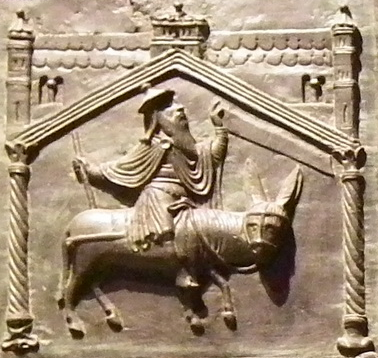Revelation 2:12-16 is one of those occasions when it is necessary for the Christian reader to be familiar with first-century Jewish interpretation of an Old Testament account.
Something Greater Than the Temple
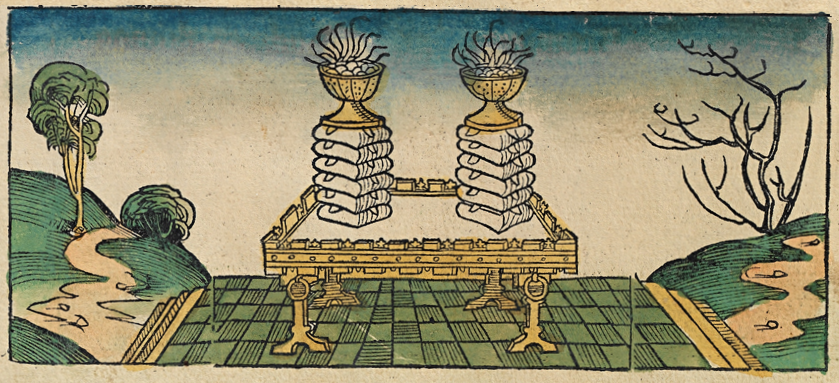
In Jesus’ statement about the Temple he did not speak of himself, he spoke of the needs and value of his disciples.
Let Him Who Is Without Sin…
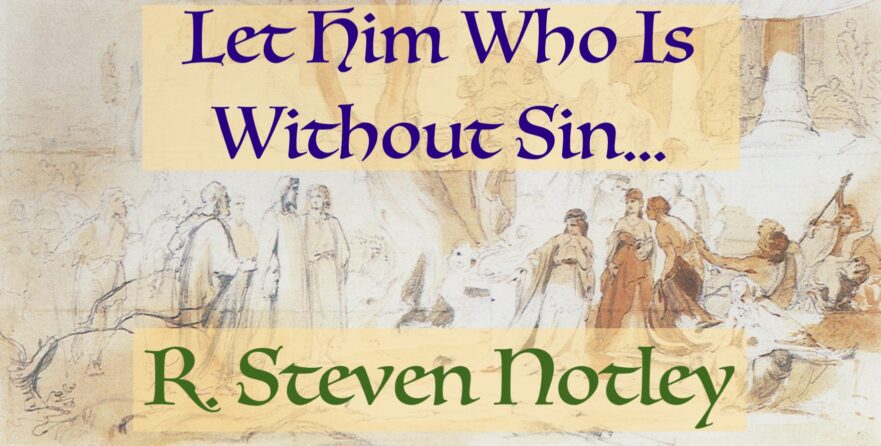
When the story of the woman caught in adultery (John 7:53-8:11) is read within the setting of the Second Temple period, it resonates with authentic attitudes and issues.
The Man Who Would Be King
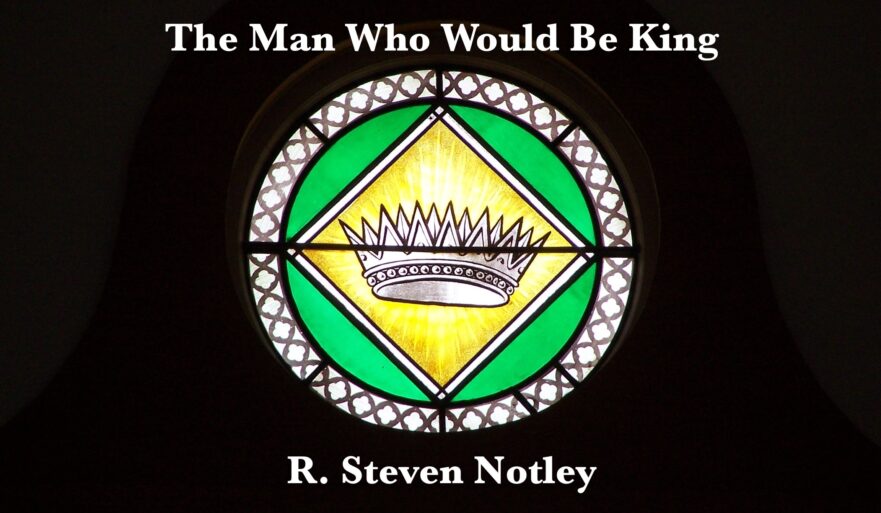
Scholarship has recognized the similarities between the Parable of the Talents and the historical account of Archelaus’ attempts to inherit the kingdom of his father, Herod the Great. When Herod died, Caesar Augustus divided the kingdom between Herod’s three sons, Archelaus, Antipas and Philip.
“Give unto Caesar”: Jesus, the Zealots and the Imago Dei
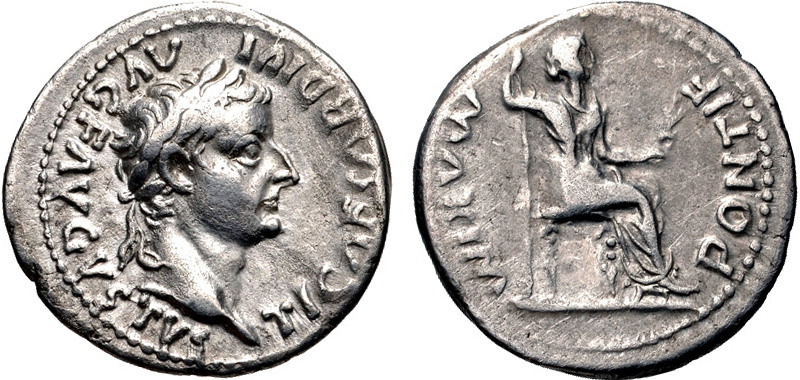
The retorts of Hillel and Jesus exemplify innovative developments in Jewish thought during the Second Temple period, developments that were established on the biblical notion that man was created in the image of God—Imago Dei (Gen. 1:27).
Were the Pharisees “Legalistic”?

If we define legalism as “works righteousness,” then we cannot apply it to the Pharisees, because the Pharisaic understanding of piety was not based upon this concept.
666: One Number or Three?
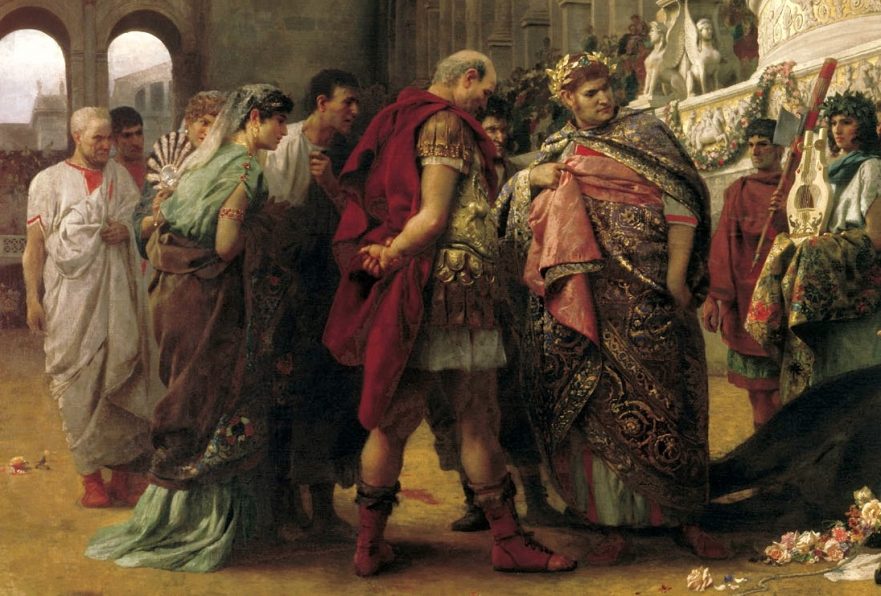
Any objective reading of Revelation can hardly fail to see the importance of this number within the author’s web of historical signifiers.
Looking Back at Forty Years in Israel
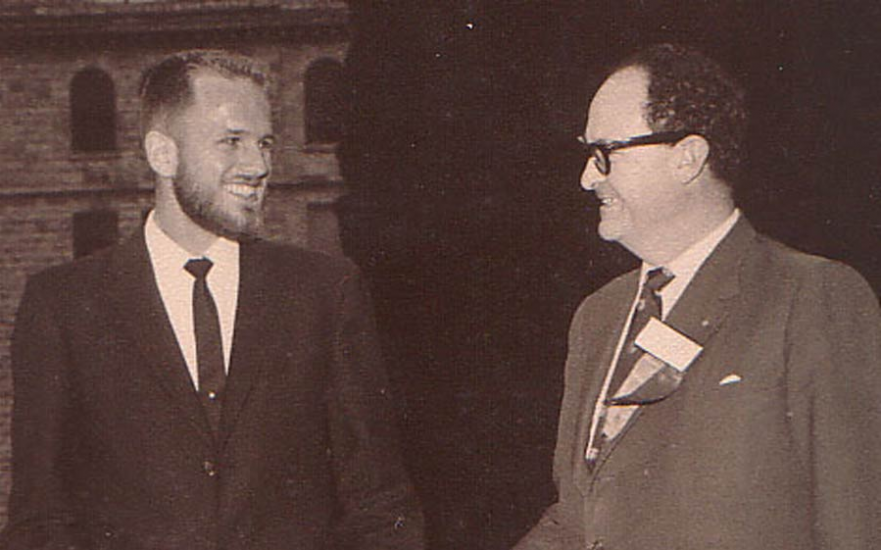
On the 4th of July I completed forty years of residency in Israel. Josa has been here almost as long–since 1968, with an additional ten months as a tourist in 1966/1967.
An Interview with Barbara Chambers, JP Office Administrator
You may have received a letter from her. Or maybe you met her at a conference or workshop. In one way or another, she has had a part in your connection with Jerusalem Perspective. Her name is Barbara Chambers and she has been our office administrator since the end of 1994.
No Longer Aliens (and Enemies) of the Commonwealth of Israel!
According to the New Testament, a pagan who becomes a follower of Jesus and enters the Kingdom of Heaven (in conservative Christian parlance, “gets saved”) becomes part of the Commonwealth of Israel.
I have just purchased an English translation of the Mishnah. I would appreciate your advice on how to properly approach my study of it.

I have just purchased an English translation of the Mishnah. I would appreciate your advice on how to properly approach my study of it.
Does Jerusalem Perspective have a statement of faith?
Jerusalem Perspective cannot have a creedal statement since its authors are men and women of different faiths.
Is Jerusalem Perspective magazine currently being published?
Jerusalem Perspective magazine was published from 1987 until 1999.
Which is the most accurate English translation of the Bible?

I have had difficulty deciding which Bible to read. I had been strongly advised to read only the King James Version as being the best translation available.
Musalaha Conference for Christian Arab and Jewish Women 2003
One of the most amazing and unusual experiences we have living in Israel is to see people who are avowed enemies nationally and historically come together in harmony and peace. A number of Israeli organizations bring together Arabs and Jews who have mutual interests (for example, in the area of the arts). Often harboring strong religious and political differences, these people get to know and understand each other on a personal level.
Pills to Calm Your Nerves? Try the Peace of the Lord!
Thousands of Israelis are inundating telephone aid centers. The reason: the difficult security situation and fear of approaching war with Iraq.
Beyond an Inheritance

Could it be that the original integrity of Jesus’ message about the Kingdom of Heaven was later compromised by the presence of other expectations of a messianic-eschatological character that circulated promiscuously in early Christian communities?

